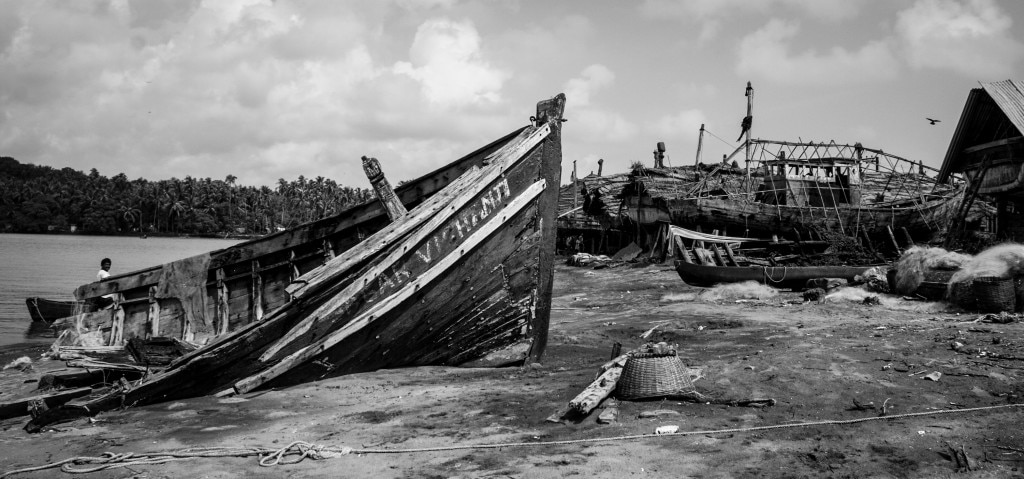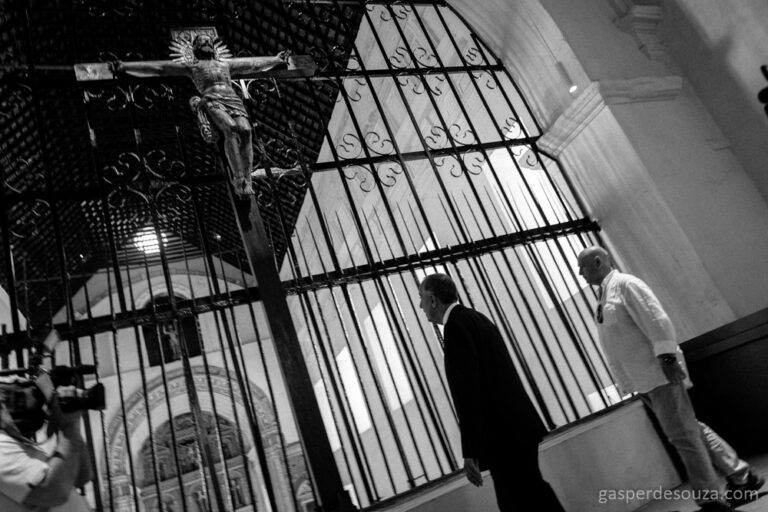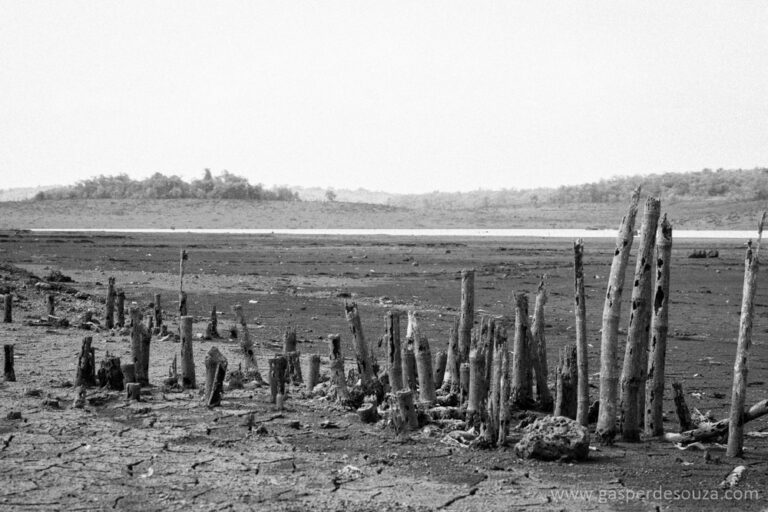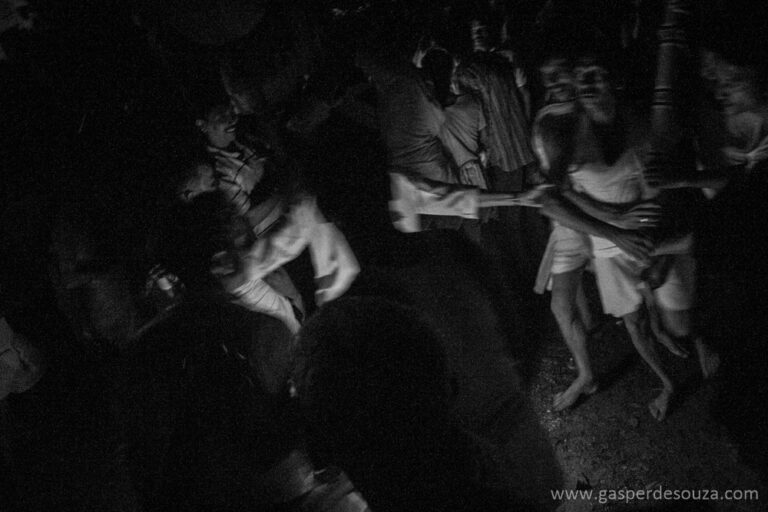A life of romance – waking before the breaking of dawn, casting out to sea on little wooden boats, cut off from the rest of humanity, at one with the waters, the universe, and god. This project was conceived to capture the romance of the Goan fisherman. Poetic descriptions of misty mornings, salty air, and the fisherman’s idyllic life probably played a good part in this conception when compared to my own life – rush through breakfast, traffic, office work, dealing with all kinds of people all day… I seemed to think the fisherman had something different, unique, and very romantic.
This was the perception back when Goa was an annual summer holiday in the land of my ancestors. Over time, I realised more fishermen were replaced by more tourists and beach shacks. The romantic way of life was fading away. This disturbed me.
When I got the opportunity as a photojournalist to do a story, I wanted to tell the story of the fisherman, at one with the sea and how his way of life has been raped by the rest of civilisation – a sorry state of affairs, a destruction of a lifestyle. Something needed to be done and done fast to stop this advance. That’s what I thought.
With that in mind, I started out on my journey to capture this fading way of life, this romantic way of life that was destined to be no more very soon.
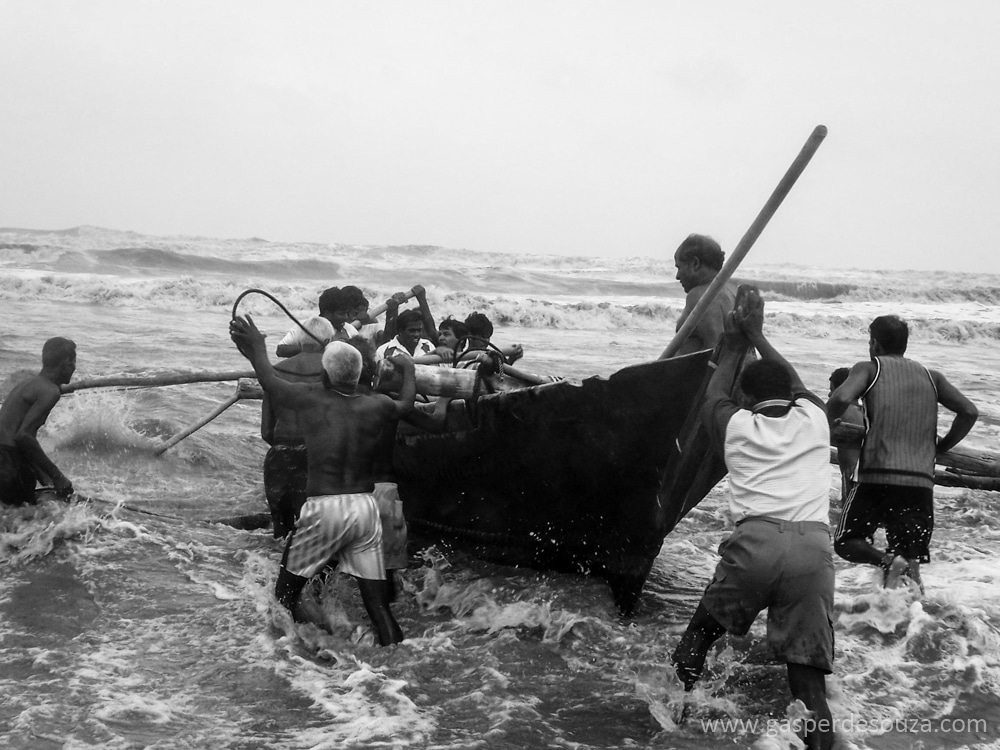
When I began documenting the fisherman, I did so from a distance. And the images that I was getting at the time were very calm, serene – dare I say, almost beautiful! But, as I got closer, it hit me. The romance I had in mind was just that – romance in my mind of something that was different from what I was accustomed to – ‘us’ versus ‘them.’ But for the fisherman, it was anything but romantic. “I do not want my sons in this occupation,” one old fisherman told me.
Once this realisation set in, my images went through a dramatic change. I tried to get into the shoes of the fishers I was trying to photograph, imaging them from their point of view and their reality began to show through the initial veil. This is when I realised the basic flaw in my initial premise. Change is a part of life, to be living is to experience change. In society, the farmer tilling the fields gave way to the machines, the potter’s earthenware metamorphed into steel and plastic. So too the traditional fisherman who had to adapt to changing times and technologies. To slow down this process, let alone reverse it, would be a futile endeavour.
I observed how the traditional fishers had moved away from the occupation of their ancestors and adapted to the changing environment, diving right into tourism. How sons of fishermen had migrated to Gulf countries and how this reflected back home, how mechanised trawlers and purse seiners had replaced the traditional wooden boats, how noveau businessmen replaced the traditional fishermen, and how migrant labour today forms 95% of the fishers in Goa, thereby raising the question, “Who is the Goan fisherman?”
Yes, change is a part of life’s progress. Oars gave way to outboard motors; canoes gave way to mechanised trawlers and purse seiners. Indeed, the ramponkar himself gave way to migrant labourers.
And where are we headed? As fishing has gone from a tradition to a business, the single most important impact this has had is on the fish themselves. Organised business will always be concerned about the bottom line and maximising profits in the short term. With the race to boost the catch, fish quantities have taken a downslide. Today, while the Goan waters can support 800 odd fishing vessels, there are officially over 2000. This is bound to have an impact on future catch. Are we headed for a fish famine?
Today, while the Goan waters can support 800 odd fishing vessels, there are officially over 2000.
Many countries worldwide have already experienced this. I believe we need to pull up our socks and give this a serious thought. Once we pass a critical point, we could be in the grip of a famine that could last years if not decades. At that point, it will be the people who will suffer. The businessmen will have long gone to greener (or bluer) pastures.
What lies in the future of fishing in Goa? If you are looking for answers you will not find them herein. In fact, there are no easy answers.
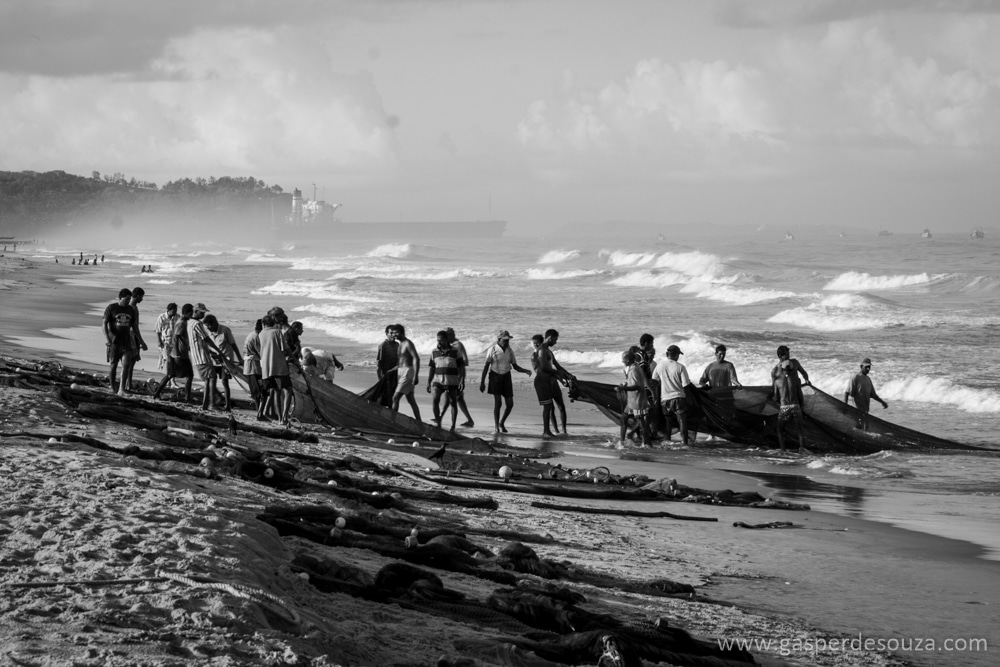
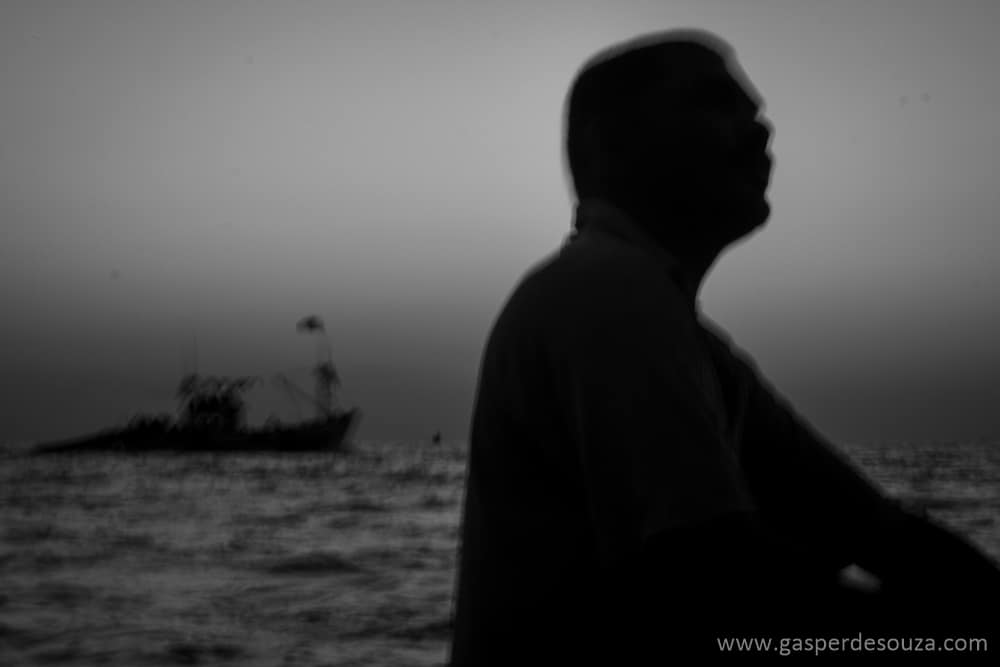
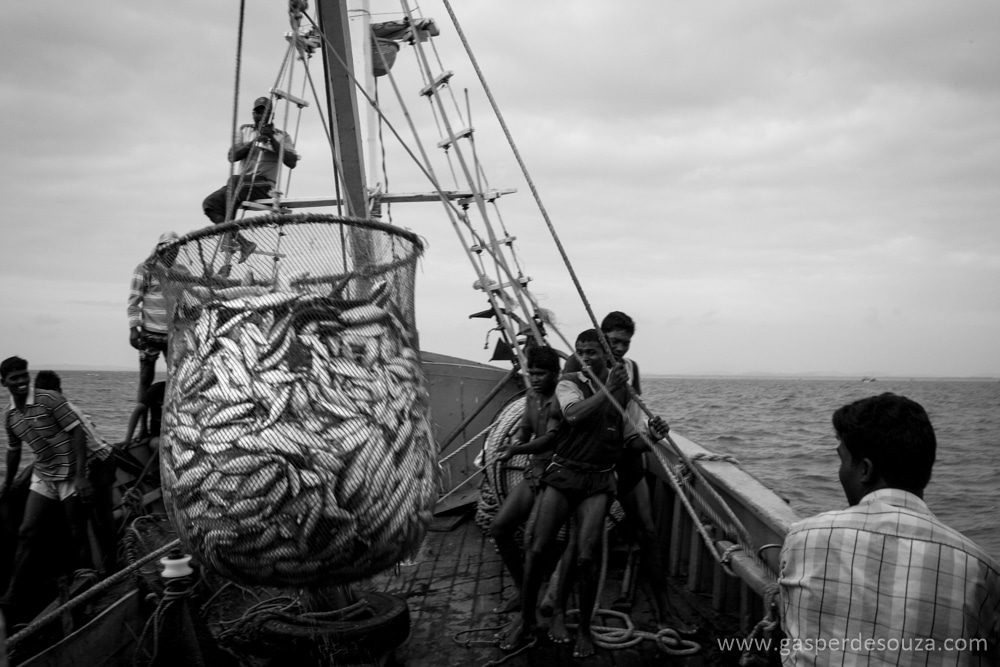
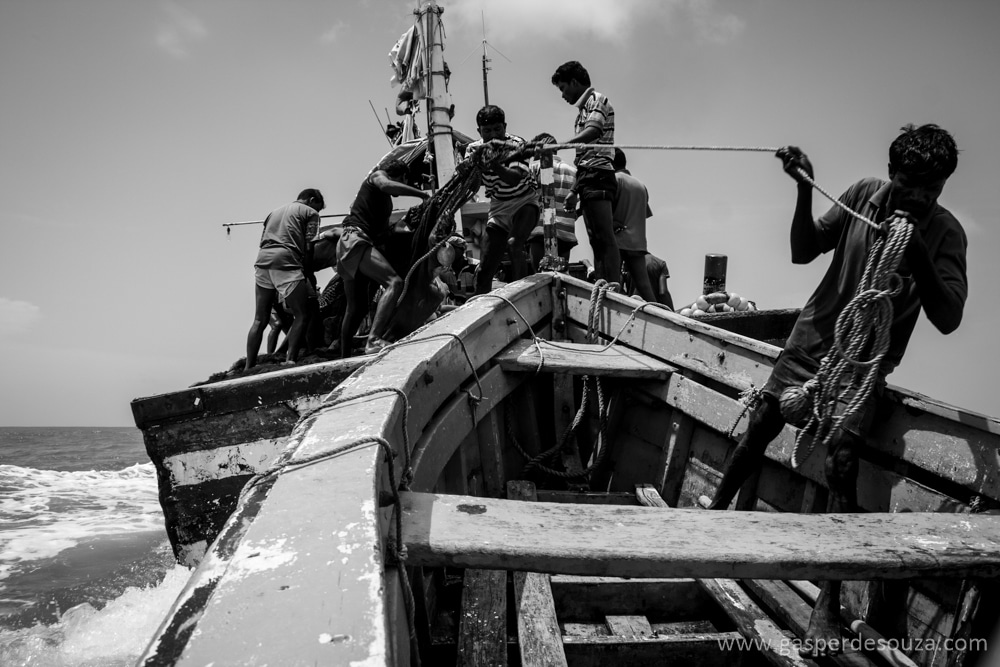
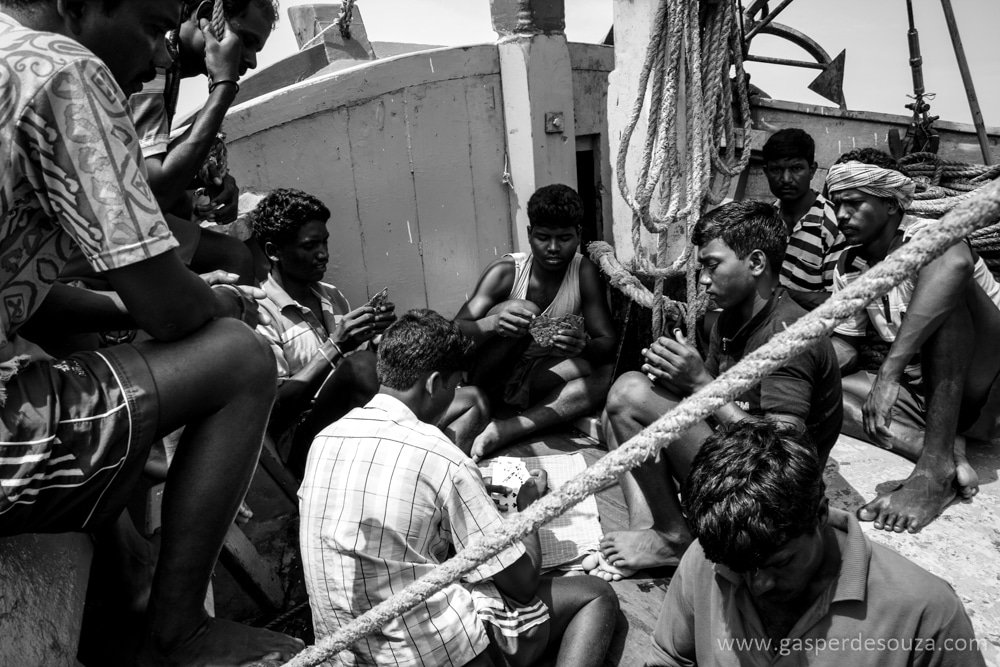
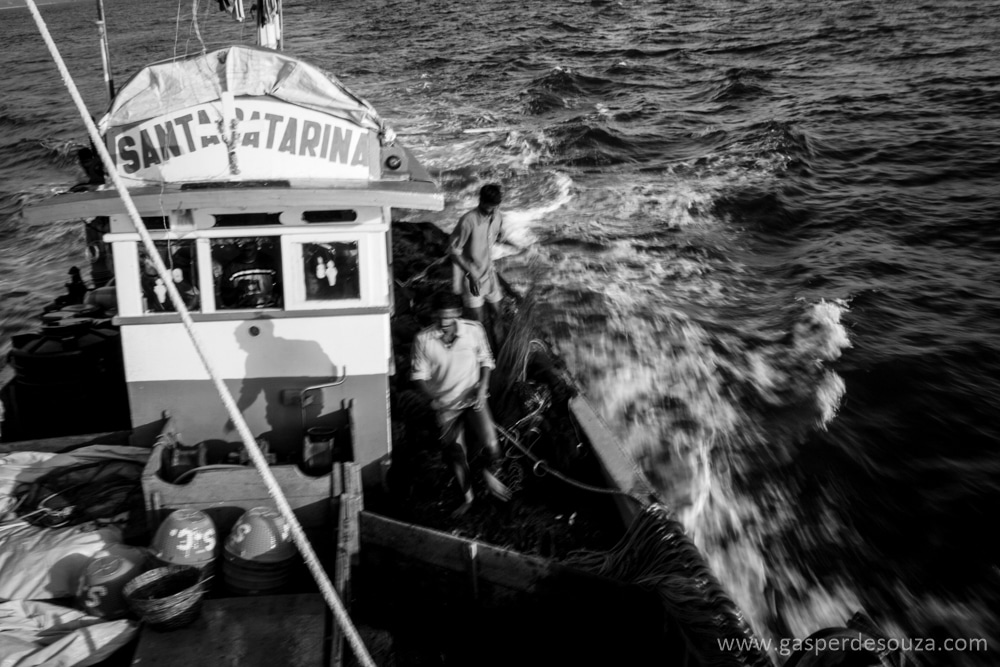
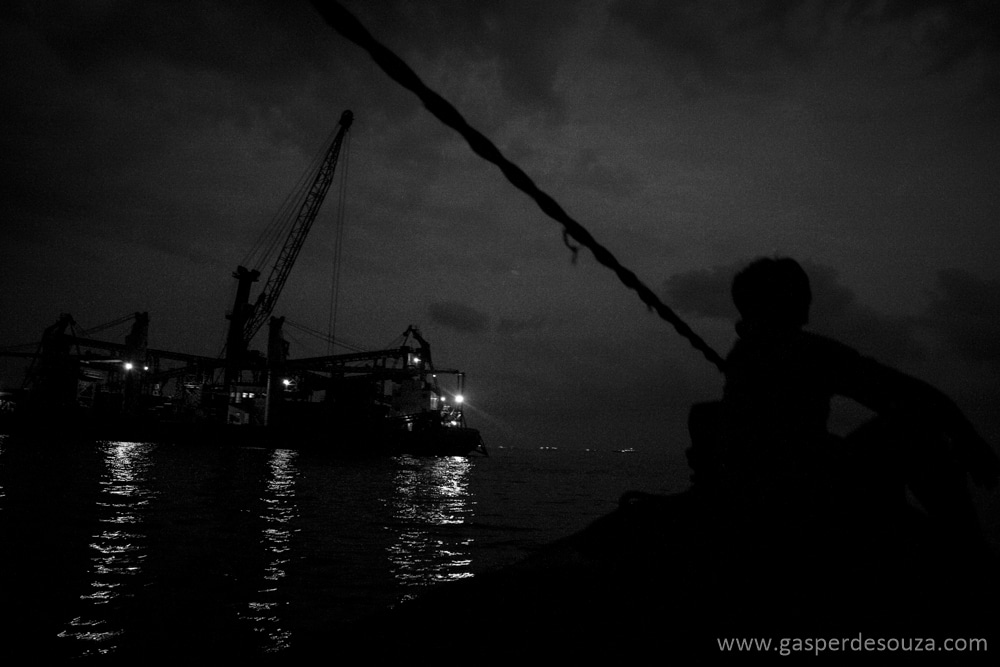
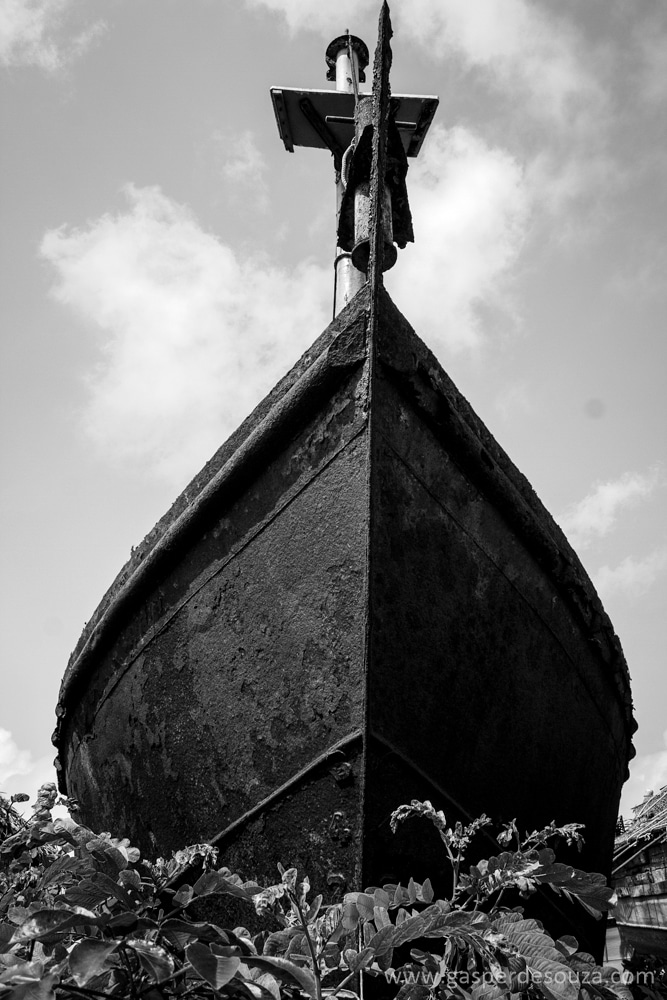
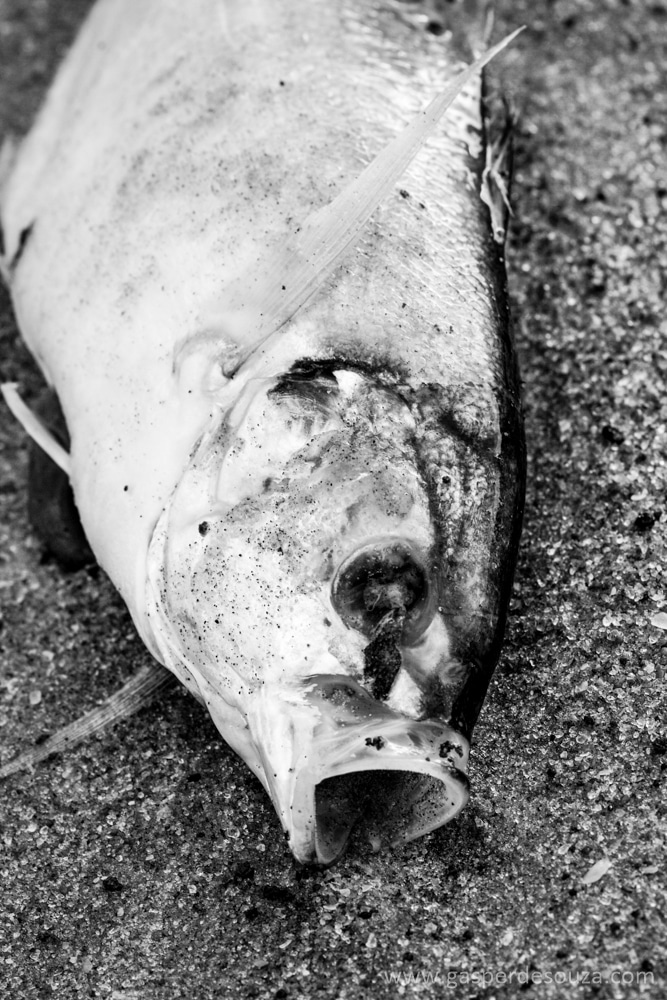
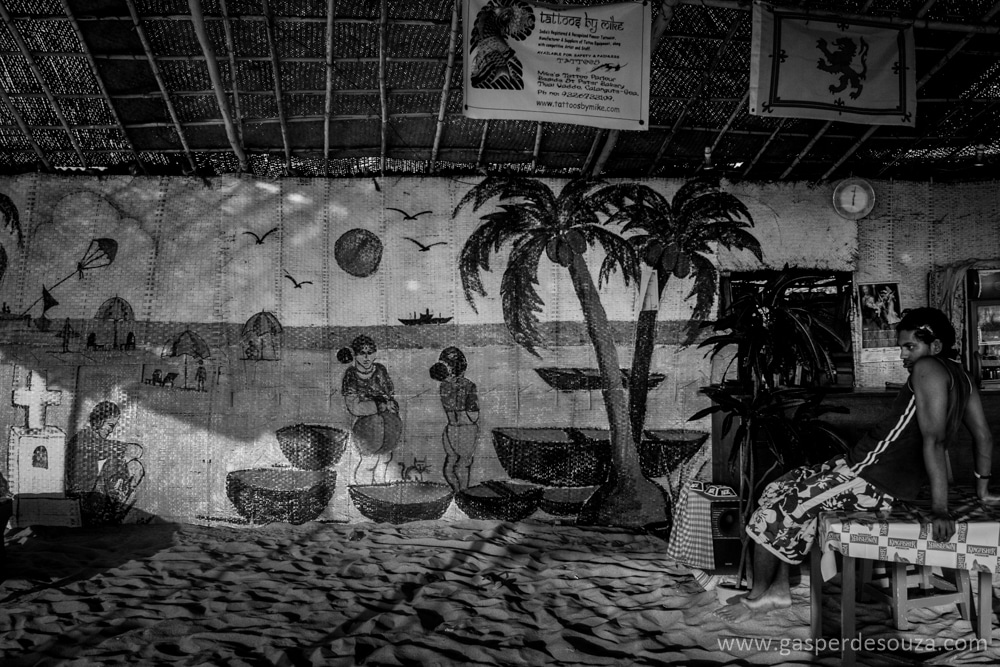
– From the Introduction to the book: Call of the Seas: A Photo documentary of the fishermen and fishing activities in Goa by S. Gasper D’Souza funded by the Dempo Charitable Trust

